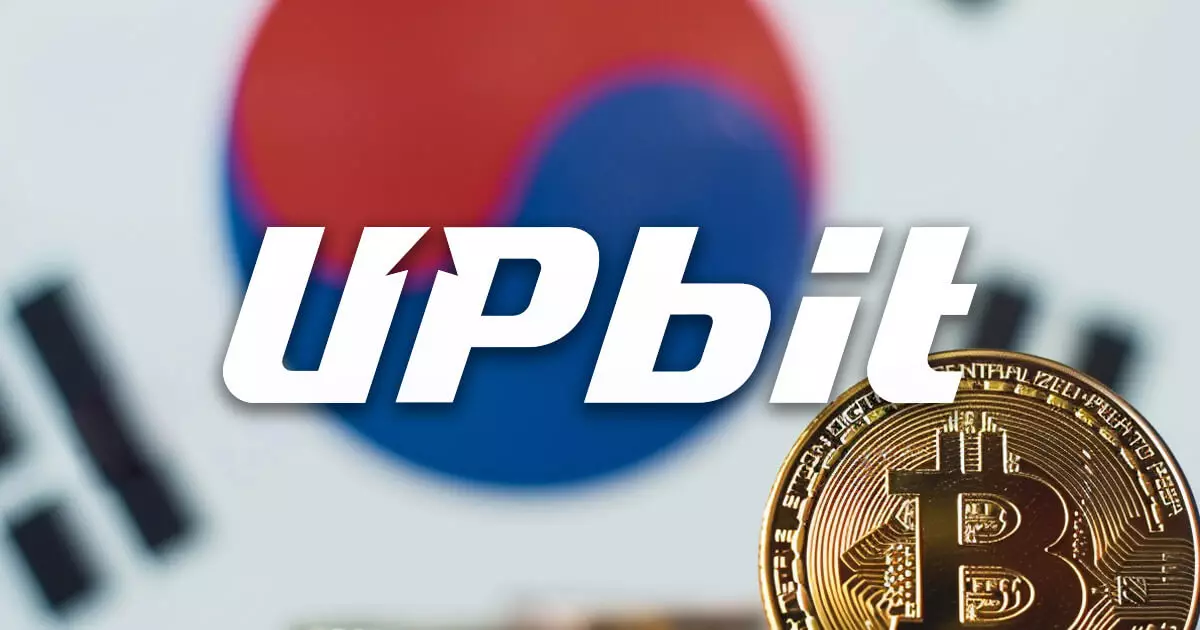The South Korean Financial Services Commission (FSC) has initiated an investigation into Upbit, the nation’s preeminent cryptocurrency trading platform. This inquiry stems from concerns regarding Upbit’s market dominance and its consequential influence on the virtual asset landscape, as highlighted in a report from the local media. The FSC, led by Chairman Kim Byung-hwan, is poised to delve into how the cryptocurrency market’s dependence on Upbit could pose systemic risks to financial stability.
The connection between Upbit and K Bank, South Korea’s inaugural internet-only banking institution, has raised eyebrows, particularly among lawmakers such as Lee Kang-il. K Bank’s establishment in 2017 marked a significant shift towards digital banking, and its potential Initial Public Offering (IPO)—projected to raise approximately 984 billion won (around $731.64 million)—could position it as one of the leading IPOs of 2024. However, the precarious intertwining of Upbit’s operations and K Bank’s financial health could jeopardize such aspirations, as Lee highlighted the alarming statistic that Upbit deposits constitute nearly 20% of K Bank’s total deposits of 22 trillion won.
The Risk of Systemic Disruption
Lawmaker Lee raised crucial concerns regarding the sustainability of high-interest rates offered by K Bank on deposits linked to Upbit. He argued that the 2.1% interest rate becomes precarious when one considers K Bank’s relatively low profit margins. This financial interdependency raises fears that any disruption in Upbit’s operations could instigate a bank run at K Bank, a scenario that could lead to severe liquidity crises and shake investor confidence.
In response to these concerns, the FSC’s chairman assured that K Bank’s IPO process would be subjected to rigorous scrutiny, ensuring that potential risks are mitigated before proceeding. Furthermore, the newly formed Virtual Asset Committee will also be investigating these complex ties between financial institutions and crypto exchanges. This examination is particularly timely, given that Dunamu, the parent company of Upbit, recently collaborated with K Bank and BC Card to forge a memorandum of understanding (MOU) aimed at creating a cooperative digital financial services model. The alliance seeks to integrate Dunamu’s trading platform with K Bank’s banking services and BC Card’s payment processing attributes, thereby enhancing the efficiency and security of digital financial transactions within South Korea.
As these investigatory proceedings unfold, the implications for both the cryptocurrency and banking sectors in South Korea are substantial. The balance between fostering financial innovation and ensuring regulatory oversight is delicate, and this investigation highlights the challenges that come with rapid advancements in digital finance. Stakeholders will be closely monitoring the outcomes, as they could redefine the operational landscape for both Upbit and K Bank and potentially influence the trajectory of digital finance within the broader Asian market. The dynamics of this cross-sector engagement will critically shape the future of banking, investment, and consumer trust in an increasingly digitalized economy.


Leave a Reply